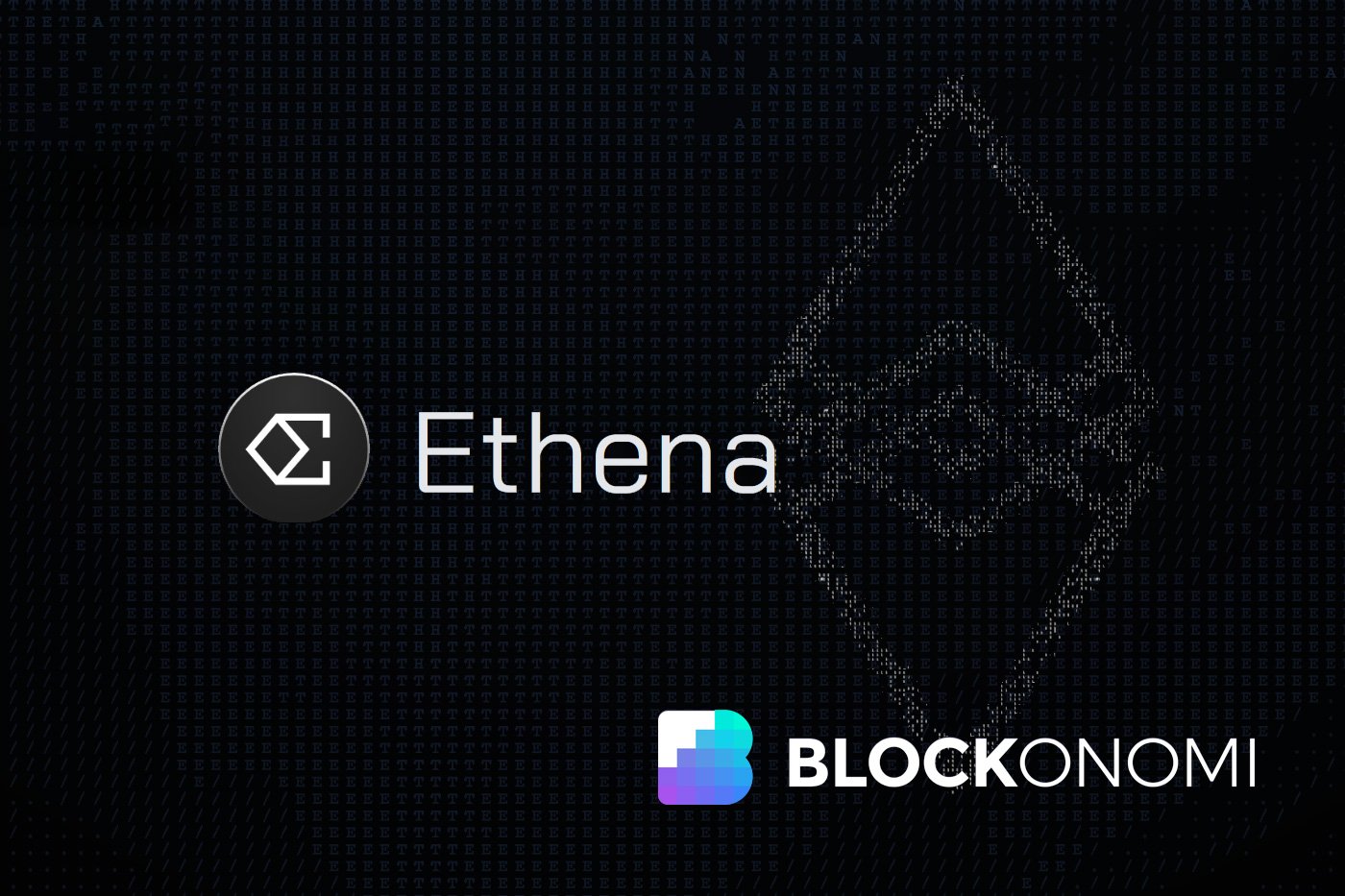Ethena Sparks Controversy with Launch of 27% Yielding Algorithmic Stablecoin

Ethena Labs recently unveiled its USDe stablecoin on the public Ethereum mainnet, introducing an alternative to existing stablecoins like USDC and UST.
The synthetic US dollar asset employs sophisticated hedging mechanisms while providing enticing 27.6% APY staking rewards. However, the promise of such high yields has stirred controversy within crypto circles.
TLDR
Ethena Labs launched its USDe stablecoin on public mainnet, offering 27.6% APY staking rewards
The high yield sparked concerns about sustainability and potential yield inversion risks
USDe utilizes delta-hedging strategies and has over $289 million locked in value
Ethena announced a “Shard Campaign” to incentivize usage and growth of its USDe stablecoin
The campaign rewards activities like liquidity provision and minting with decaying shard rewards over time
USDe aims to maintain its dollar peg through delta-hedging, shorting ETH derivatives to offset volatility. This approach appears to differentiate it from failed algorithms like UST. Already, USDe has attracted significant interest, amassing over $289 million in total value locked.
Yet despite its innovations, Ethena faces skepticism regarding the sustainability of its high staking rewards. Critics point to the risks of yield inversion, where negative yields can rapidly destabilize a protocol. Others argue that hedging trades come with costs that may eventually diminish returns.
Announcing the @ethena_labs public mainnet ????
Details on our “Shard Campaign” in the following tweet pic.twitter.com/kXU5WjJ4rB
— Ethena Labs (@ethena_labs) February 19, 2024
Seeking to spur adoption and growth, Ethena also unveiled a “Shard Campaign” incentivizing activities around USDe. The program issues token rewards for actions like minting assets and supplying liquidity. These shard rewards decrease over shorter “epochs” lasting days or weeks, encouraging rapid participation.
However, the campaign limits involvement from US users to ensure regulatory compliance. Some have criticized these restrictions as exclusionary, conflicting with ideals of decentralization. Nonetheless, Ethena maintains its ecosystem requires participation from long-term, ethical contributors.
As algorithmic stablecoins remain controversial following UST’s collapse, USDe represents a daring new experiment. Yet its long-term sustainability remains uncertain, with both rewards and risks stretched to extremes…






